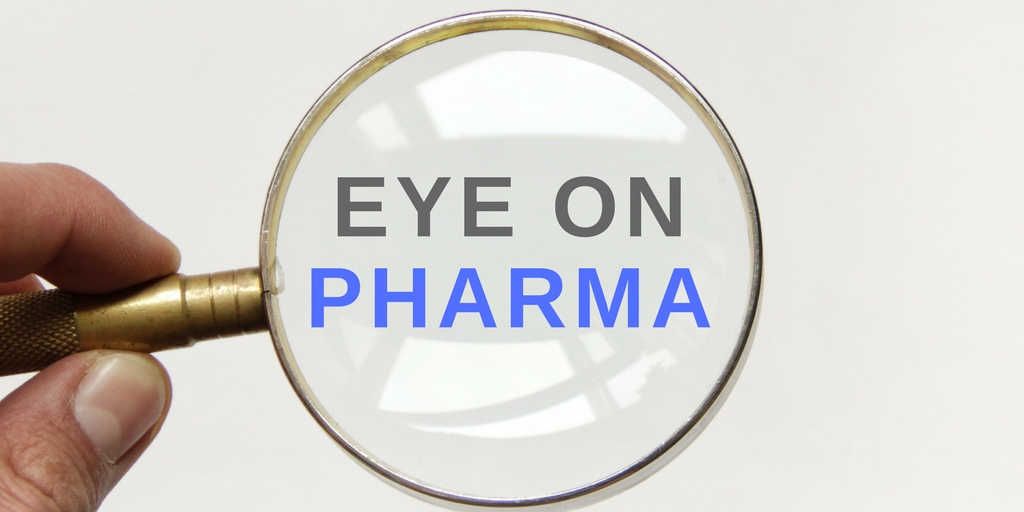- Bone Health
- Immunology
- Hematology
- Respiratory
- Dermatology
- Diabetes
- Gastroenterology
- Neurology
- Oncology
- Ophthalmology
- Rare Disease
- Rheumatology
Eye on Pharma: Biosimilar Ozempic; Celltrion Omalizumab Biosimilar Submission
A Chinese company has expressed interest in developing a biosimilar to Ozempic (semaglutide); Celltrion completed its biologic license application for its omalizumab biosimilar candidate.
A Chinese company has expressed interest in developing a biosimilar to Ozempic (semaglutide), a popular drug used for diabetes and weight loss; Biocon and Mylan are in talks to merge their biosimilar businesses; Celltrion completed its biologic license application (BLA) for its omalizumab biosimilar candidate.

Biosimilar Ozempic on the Horizon?
A report from Reuters found that Chinese drugmaker Hangzhou Jiuyuan Gene Engineering is working on a biosimilar to Novo Nordisk’s semaglutide (Ozempic and Wegovy). Semaglutide has gained a lot of traction around the world in the past couple years, particularly in the US, as a popular treatment for type 2 diabetes and obesity.
The move could pose challenges to the originator manufacturer’s planned expansion into China as patents for Ozempic are not set to expire until 2026. Chinese sales of drug soared in 2023, reaching nearly $700 million; however, the demand is largely driven by people seeking weight loss.
Approval for Hangzhou Jiuyuan Gene Engineering's biosimilar, named Jiyoutai, would make it China's first locally developed biosimilar semaglutide drug. However, Novo Nordisk has expressed concerns about the impact of cheap copies of Ozempic on its business in China, emphasizing the importance of innovation protection to encourage the development of new medicines.
Hangzhou Jiuyuan Gene Engineering conducted a late-stage clinical trial comparing its semaglutide injection with Ozempic. Despite the potential launch of Jiyoutai, the company acknowledged that commercialization would depend on the outcome of Novo Nordisk's patent status on Ozempic.
In related news, Novo also faced challenges with Ozempic supply shortages in Europe, with starter kits unavailable in Germany during the second quarter.
Celltrion Omalizumab Biosimilar Submission
Celltrion USA announced the submission of a BLA for CT-P39, a biosimilar candidate to Xolair (omalizumab). The company is hoping to gain approval for the biosimilar as a treatment for moderate to severe persistent allergic asthma, chronic spontaneous urticaria (CSU), IgE-mediated food allergy, and chronic rhinosinusitis with nasal polyps as well as an interchangeability designation.
The submission included data from a global phase 3 clinical trial assessing CT-P39's efficacy, safety, and pharmacokinetics compared with the reference product in patients with chronic spontaneous urticaria up to week 40.
According to Celltrion, Xolair achieved global market sales of $3.89 billion in 2022. In the US, the compound patent for the product has expired and patents protecting Xolair’s formulation are set to expire in November 2025.
The news comes after Celltrion launched Zymfentra (infliximab-dyyb) in the US as the first and only subcutaneous infliximab product.
Budget Impact Analysis of Biosimilar Natalizumab in the US
Projected savings from biosimilar natalizumab were $452,611 over 3 years, driven by decreased drug acquisition costs and a utilization shift from reference to biosimilar natalizumab.
Biosimilars in America: Overcoming Barriers and Maximizing Impact
July 21st 2024Join us as we explore the complexities of the US biosimilars market, discussing legislative influences, payer and provider adoption factors, and strategies to overcome industry challenges with expert insights from Kyle Noonan, PharmD, MS, value & access strategy manager at Cencora.
Eye on Pharma: BI Cyltezo Partnership; Europe Ustekinumab Launch; Mexico Biosimilar Approval
July 24th 2024Boehringer Ingelheim (BI) partners with GoodRx to offer its unbranded adalimumab biosimilar to patients at an exclusive low price; a new ustekinumab biosimilar launches in Europe; and Mexican officials approve a bevacizumab biosimilar.
Exploring the Biosimilar Horizon: Julie Reed's Predictions for 2024
February 18th 2024On this episode of Not So Different, Julie Reed, executive director of the Biosimilars Forum, returns to discuss her predictions for the biosimilar industry for 2024 and beyond as well as the impact that the Forum's 4 new members will have on the organization's mission.
